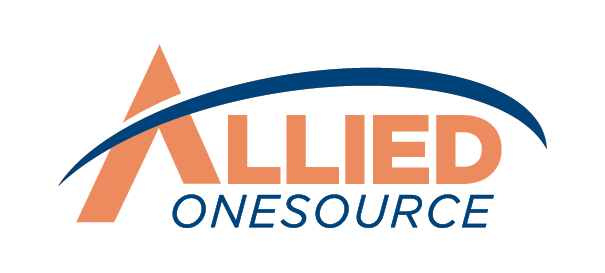How to Show Emotional Intelligence in Behavioral Interviews
Have you ever walked out of an interview feeling like you nailed every question, only to receive a rejection email days later? Often, the missing piece isn’t your technical skills or experience but your ability to demonstrate emotional intelligence (EQ).
Hiring managers actively seek candidates who can understand emotions, communicate effectively, and navigate workplace relationships, regardless of the role or industry.
Behavioral interviews give you the perfect chance to show your EQ in action. When interviewers ask how you've handled challenges or collaborated with teammates, they're evaluating both what you did and how you did it. Read on to find practical ways to demonstrate emotional intelligence during interviews, to transform your responses into compelling evidence of your interpersonal strengths.
Why Emotional Intelligence Matters in Behavioral Interviews
Emotional intelligence directly impacts your success both during interviews and on the job. A report by the World Economic Forum found that many employers consider EQ a top predictor of workplace success—even above technical qualifications for certain positions.¹ Why? Because your ability to understand emotions (both yours and others') affects every aspect of work life.
Think about it: technical skills might get you through the door, but emotional intelligence determines how far you'll go once inside. Even the most brilliant programmer, accountant, or designer will struggle if they can't collaborate effectively, handle criticism constructively, or adapt to changing priorities. No one works in isolation; your interactions with colleagues, managers, and clients matter just as much as your technical competence.
During behavioral interviews, hiring managers are looking beyond your resume to assess how you'll fit into their team. They want to know: Will you stay calm under pressure? Can you resolve conflicts productively? Do you communicate clearly when challenges arise? These qualities, which are all rooted in emotional intelligence, help employers predict how you'll perform in real-world scenarios, not just on paper.
Read More: 6 Key Behavioral Interview Questions & Winning Answers
How to Showcase Emotional Intelligence in Behavioral Interviews
Here are some practical ways you can demonstrate EQ in interview questions:
1. Craft Structured Responses Using the STAR Method
The STAR method (Situation, Task, Action, Result) creates a framework for answering behavioral questions, but to truly stand out, infuse your responses with emotional intelligence.
For example, if asked about handling conflict, don't just describe what happened—highlight how you managed emotions throughout the process:
Situation: "During a critical project launch, my team disagreed about prioritizing features versus meeting the deadline."
Task: "As the project lead, I needed to resolve this tension while keeping everyone motivated."
Action: "I called a meeting where I asked each person to express their concerns without interruption. I acknowledged both perspectives as valid, then facilitated a discussion focused on our shared goal of delivering quality work. We mapped the features against customer needs to find a middle ground."
Result: "We compromised on a staggered release schedule that met the deadline while incorporating essential features. More importantly, team members felt heard and valued, which strengthened our working relationships for future projects."
Notice how this response showcases self-awareness (recognizing tension), empathy (ensuring everyone was heard), social skills (facilitating productive discussion), and self-regulation (staying neutral despite pressure)—all key components of emotional intelligence.
2. Use Body Language and Tone Effectively
Your words are important but so is how you deliver them. During the interview, your body language and tone can speak volumes about your EQ. Here how you can reinforce your message using body language:
- Maintain eye contact: This shows confidence and attentiveness.
- Use open gestures: Avoid crossing your arms, as it can make you appear defensive.
- Speak calmly and clearly: A steady tone conveys self-regulation, even when discussing stressful situations.
For instance, if you’re asked about a time you failed, your tone should reflect resilience rather than frustration. Say something like,
“I missed a deadline early in my career, but I used it as a learning opportunity. Since then, I’ve improved my time management skills and always communicate proactively with my team.”
3. Demonstrate Self-Awareness and a Growth Mindset
Self-awareness, recognizing your strengths and growth areas, is foundational to emotional intelligence. When asked about weaknesses or mistakes, demonstrate this quality by owning your experiences without defensiveness.
For example, "When my manager pointed out that my presentations lacked audience engagement, I initially felt disappointed. But rather than making excuses, I thanked her for the specific feedback, enrolled in a public speaking course, and started practicing with colleagues who could provide honest critiques. Six months later, client feedback on my presentations improved significantly."
This showcases multiple aspects of emotional intelligence: the self-awareness to recognize areas for improvement, the emotional regulation to handle criticism constructively, and the motivation to grow rather than remain static.
Employers value candidates who view challenges as opportunities rather than threats, a perspective that fosters innovation, collaboration, and continuous improvement in any workplace.
Read More: Things to Help You Stand Out in an Interview
4. Show Empathy and Team Orientation
Strong EQ manifests in how you relate to colleagues and approach teamwork. When discussing past collaborations, highlight instances where you demonstrated empathy through conflict resolution and effective communication.
For example, "When two colleagues disagreed about the development approach for a client project, I noticed tension building in our meetings. Instead of forcing a quick decision, I spoke with each person individually to understand their underlying concerns, then facilitated a discussion that acknowledged both perspectives before finding common ground."
This example demonstrates your ability to recognize others' emotions, adapt your communication style to different personalities, and prioritize team cohesion over being right. Employers value candidates who can navigate interpersonal dynamics effectively because these skills create productive work environments.
5. Display Adaptability and Stress Management
Your response to unexpected challenges reveals volumes about your emotional intelligence in high-pressure situations. When asked how you handle stress or adapt to change, provide concrete examples that demonstrate emotional regulation and resilience.
For instance, "When our team suddenly lost access to critical data three days before a client presentation, I recognized my initial panic wasn't helpful. I took a brief moment to reset, then broke down the problem into manageable parts, reassigned priorities based on team strengths, and maintained transparent communication about our progress with stakeholders."
This response shows you can recognize stress signals, manage your reactions productively, and maintain focus on solutions rather than dwelling on problems. Interviewers are looking for candidates who remain composed when plans derail—who can pivot thoughtfully rather than react impulsively.
Read More: Here's Why Soft Skills Matter More in a Digital World
6. Prepare EQ-Focused Stories Before Your Interview
Before your interview, identify specific experiences that showcase your EQ competencies. Reflect on situations where you practiced active listening to understand a colleague's concerns, managed your emotions during a crisis, or adapted your communication style to connect with different personalities.
Prepare concise stories that highlight how your emotional awareness positively impacted outcomes—whether resolving conflicts, improving team dynamics, or better serving clients.
Practice articulating these experiences without sounding rehearsed. A candidate's emotional authenticity resonates with interviewers, who can distinguish between genuine reflection and memorized responses. Consider asking a trusted friend to conduct mock interviews where they provide feedback not just on your answers, but on your nonverbal cues and tone.
Ready to showcase your emotional intelligence in your next interview?
Mastering emotional intelligence isn't just about landing your next job but about building a foundation for long-term career success. As workplaces increasingly value these competencies, your EQ skills will differentiate you at every career stage.
At Allied OneSource, our expert recruiters can help you identify and articulate your unique EQ strengths, prepare for behavioral interviews, and connect with employers who value these essential skills. Take the next step today—our team is here to guide you through the hiring process with personalized advice and resources.
Reference
1. The Future of Jobs Report 2023. (2023, April 30). World Economic Forum. https://www.weforum.org/publications/the-future-of-jobs-report-2023/











